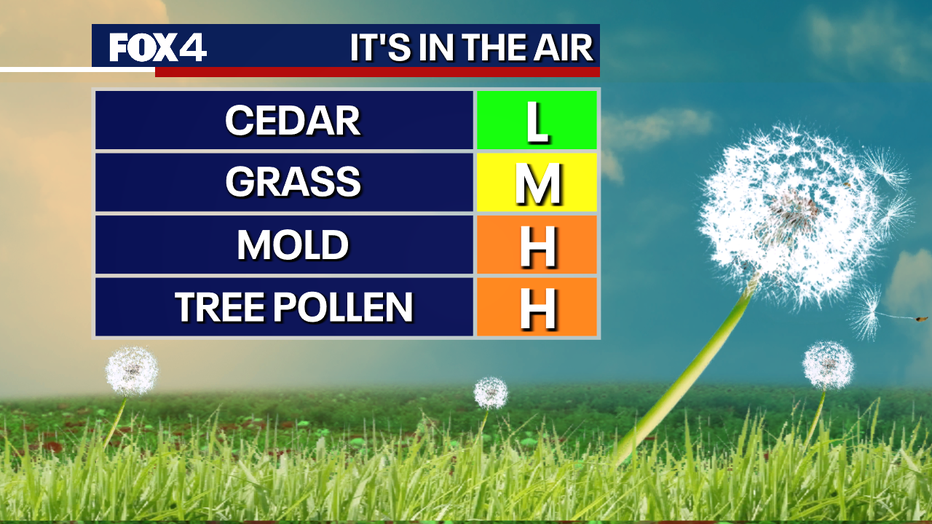Dallas allergies: What is the pollen count for North Texas?
(Photo by Angelika Warmuth/picture alliance via Getty Images)
DALLAS - Are you wondering why your eyes are watering, you're sneezing, maybe have a sinus headache? We can tell you it may have something to do with the tree and grass pollen in the North Texas air.
What is the pollen count for North Texas?
Tree, grass, ragweed and mold are the worst offenders of seasonal allergies. In North Texas, the top tree allergens are Oak, Hackberry and Maple.
FOX 4 Meteorologist Evan Andrews says mold spores currently in the air are also a contributing factor to sinus and allergy issues.

Tree Pollen
Tree pollen is fine, powdery pollen. It is easy for the wind to carry it for miles. The peak season is February through June.
During peak season for tree pollen, keep your windows and doors closed, especially on windy days. Avoid outdoor activities in the early morning, and be sure to shower and change clothes after going indoors. Taking allergy medication can also help alleviate symptoms.
Grass Pollen
Grass pollen is caused by a variety of grasses that can peak at different times, depending on your geographic region. The peak season is March through September.
Grass pollen can be kept at bay if you keep your lawn cut short. Avoid spending time outdoors during the morning and mid-afternoon hours. Remember to take your shoes off as soon as you return inside. This will help keep the grass pollen out of your home.
Mold
Mold spores can be prevalent outdoors, especially during the summer and fall when there's more moisture and decaying vegetation. Mold is year-round, but it peaks in July through late summer.
The symptoms are sneezing, runny or stuffy nose, itchy eyes, nose, and throat, watery eyes, and cough.
Ragweed
Ragweed grows throughout the United States, with most plants found in rural areas in the Eastern and Midwest states. However, ragweed pollen can be carried hundreds of miles. Allergy symptoms are usually felt August through November.
If you have a ragweed allergy, keep your windows and doors closed during allergy season. Avoid walking through tall grasses. Cover your eyes and hair while spending time outside. Take your shoes off as soon as you go indoors. Take allergy medication at least two hours before venturing outside.
The Source: Information in this article is from FOX 4 News Weather team, pollen.com, The Weather Channel, and AccuWeather.

